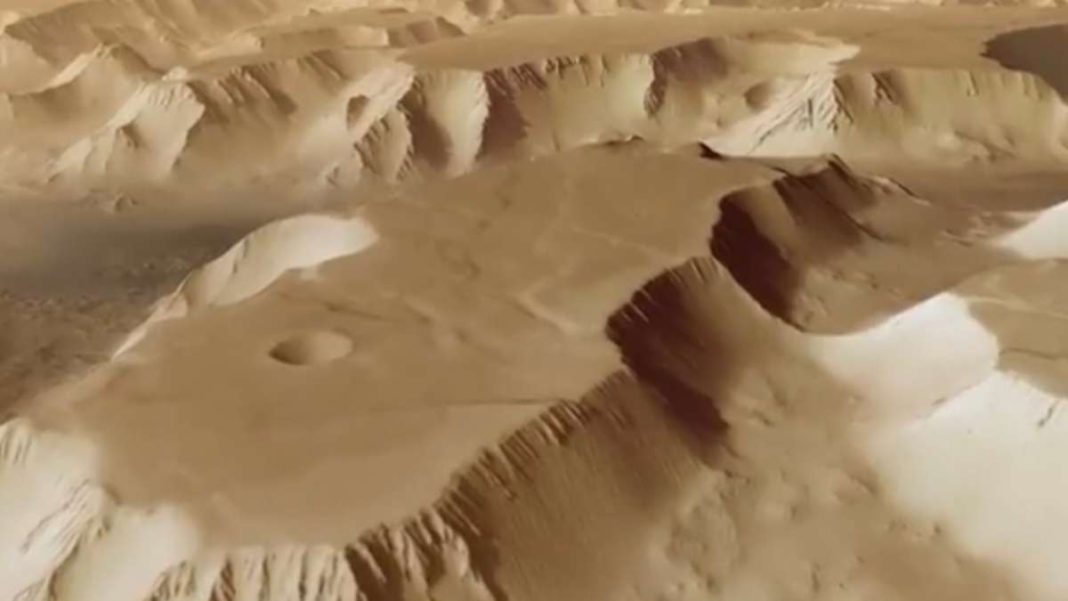UNITED KINGDOM: The European Space Agency (ESA) has shared a captivating video showcasing the vast and mysterious “Labyrinth of Night” on the surface of Mars. This monumental geological feature spans a staggering 2,500 miles (4,023.36 kilometers) in length, equivalent to roughly the size of Italy.
The video offers a mesmerizing flyover of this Martian landscape, thanks to the Mars Express spacecraft’s High-Resolution Stereo Camera (HRSC).
The “Labyrinth of Night,” formally known as Noctis Labyrinthus, lies nestled between two other notable Martian landmarks: Valles Marineris, Mars’ equivalent of Earth’s Grand Canyon, and the tallest volcano in the entire Solar System, situated in the Tharsis region.
The video’s creation was an intricate process that involved compiling an image mosaic gathered over eight orbits of the Mars Express spacecraft. This technology allows for an incredibly detailed and immersive view of the Martian surface.
The video offers viewers a unique perspective as it guides them through this awe-inspiring landscape. A prominent highlight is the presence of “graben,” geological formations that are clearly visible. These graben are parts of Mars’ crust that have subsided between two faults, resulting from the extension or pulling apart of the planet’s crust.
The formation of these remarkable features is attributed to the intense volcanic activity occurring in the nearby Tharsis region. The volcanic processes lead to significant sections of the Martian crust rising and becoming tectonically stressed, which ultimately causes thinning, faulting, and subsidence.
The video also showcases high plateaus, which represent the planet’s original surface level. These plateaus, altered by volcanic activity, contribute to the awe-inspiring topography of the Labyrinth of Night. According to ESA, these valleys can reach widths of up to 30 kilometers and depths of six meters, making them a captivating and integral part of Mars’ geological landscape.
The Mars Express mission has been a stalwart presence in orbit around the Red Planet for two decades, beginning its mission in 2003. Its objectives include comprehensive mapping of Mars’ surface, mineral studies, analysis of the planet’s thin atmosphere, probing the Martian subsurface, and exploring the interactions of various phenomena within the Martian environment.
Also Read: New Research Challenges Long-held Notion of Lightning on Venus



